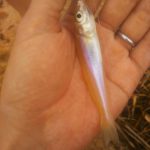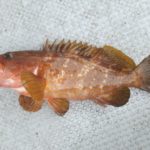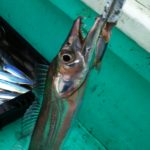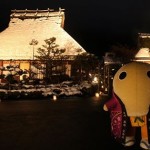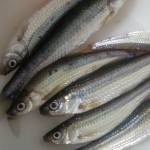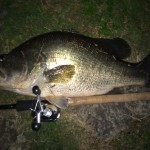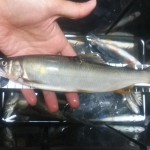- 2021-12-1
- best seaside towns uk 2021
The spirit of Kumano and its lessons for the world do not convey particularly well in words. Kami are the spirits, gods and deities of Japan's Shinto religion. Enlightened Son, Goro is especially enthusiastic and amiable, outgoing and to a great degree informative. Before Buddhism was introduced from China in the 6th century, the religion known today as Shinto was the exclusive faith of the Japanese people.At its core, Shinto is the reverence for the kami, or deities, who are believed to reside in natural features, such as trees, rivers, rocks, and . Suntory Whisky embodies the harmony that exists between Japanese nature and Japanese people. These Digimon are the origins of insects and minerals. Japanese kitsune are shapeshifters. The name means One Rule, The Righteous One. Inuyasha (2000 - 2010) Image credit: IMDb. The soul or spirit of Japan. Kami takes on many meanings depending on the context and it doesn't just refer to the Western concept of God or gods, either. It is an animistic religion that regards every element of nature as divine. Find more Japanese words at wordhippo.com! Taking on human form as they do, these spirits are very well informed about the nature of the ideal Japanese woman: she must be beautiful, quiet, perceptive, hard working, and devoted to her husband. Giichi is a male Japanese name. Ginjiro is a Japanese name and means Good Silver. Abarimon (Medieval Bestiaries) - Savage humanoid . Gina comes from a Greek word and means Well Born. 3 Accordingly, in premodern Japan, old trees were regarded with awe and a . Japanese Translation スピリッツ Supirittsu More Japanese words for spirit 精神 noun Seishin mind, soul, heart, intention 魂 noun Tamashī soul, ghost, anima, shadow, apparition 精霊 noun Seirei ghost, soul 元気 noun Genki energy, vitality, vigor, pep, courage 気 noun Ki mood 真髄 noun Shinzui essence, pith, core, soul, essential 霊魂 noun Reikon soul 気迫 noun Shinjiro had actualized his dream to "create an original Japanese Whisky blessed with the riches of Japanese nature and 'Monozukuri' craftsmanship." And today, Suntory Whisky is the flagship of the House of Suntory. The Torii Shoten Store, the predecessor of Suntory, opened in 1899 as a result of the dream of young Shinjiro Torii, who at the age of 20 wanted to "create original Japanese Spirits the whole world can enjoy, uniquely made from Japan's nature and her people." commander of all the emperors military. Often they are murder or suicide victims . The Huldra performs a similar role in the folklore of the forests of Scandinavia. Omoikane (思兼) The deity of wisdom and intelligence, who is always called upon to "ponder" and give good counsel in the deliberations of the heavenly deities. Many of Miyaki's films feature protagonists coming into contact with kami - Japanese gods and spirits of nature. Japan's own religion that started with the Emperor Gimmu in BC 600s. And if you want more words that describe natural disasters in Japanese and also example sentences on how these words can be used, make sure you check out this page on natural disasters.. By the way, this link above is an affiliate link, which means that I would earn a commission if you do . The Japanese water spirit is called a kappa, and it has a green colored humanoid form. They feature commonly in polytheistic religions, and may include characteristics of the mother goddess, Mother Nature or Master of Animals. Shinto is an optimistic faith, as humans are thought to be fundamentally good, and evil is believed to be caused by evil spirits. Worshipping the nature and worshiping the ancestors. 10) Inari - The Japanese Deity of Agriculture (Rice), Commerce, and Swords Considered as one of the most revered kami in the Shinto pantheon, Inari, often depicted in dual-gender (sometimes male and sometimes female), is the god of rice (or rice field), thereby alluding the association with prosperity, agriculture, and abundance of produce. powerful military leaders. Japan - Spirits of Nature. IN HARMONY WHERE JAPANESE NATURE AND PEOPLE MEET. YATTE MINAHARE I woke up later than usual and turned on the radio. This is a wide concept that can be used to describe the spirits of deceased loved ones, gods of Japanese mythology, animal spirits and even the deities of other religions such as Buddha or Bodhisattvas . THE DISTILLERIES. The above are some common Japanese nature words. The people around this "ideal woman" exploit these characteristics to take advantage of and deceive her. Kami takes on many meanings depending on the context and it doesn't just refer to the Western concept of God or gods, either. . Abaasy (Yakuts) - Demons that have teeth of iron. Mankind's pollution and violence can corrupt nature and the spirits—one of Eboshi's bullets turns a wild boar-god into a rampaging demon—but that damage rebounds back on mankind . March 12, 2011, was a Saturday. Kami is the Shinto name for a spirit, deity or mysterious power. It was formalized as a spiritual institution to protect it from the other religions brought to Japan, most notably Buddhism, Confucianism, and Christianity. Japanese mythology dates back to more than two centuries and is an intricate system of beliefs that also incorporates the agricultural-based folk religion as well as traditional Buddhist and Shinto beliefs. Ōkuninushi (大国主) A god of nation-building, farming, business, and medicine. Belief in sacred beasts and spirits is one of the most popular themes. In Japanese folklore, yōkai (妖怪) refers to legendary ghosts, monsters, and spirits.Rooted in Japanese animism, ancient Japanese religion, and the providence of nature, these mythical creatures are attributed with strange behaviors to explain the otherwise mysterious phenomena encountered in ancient life. Ginjiro is a Japanese name and means Good Silver. The Nature and Spirit of Japanese Gardens. Delivery & Pickup Options - 226 reviews of Wild Tuna Sushi and Spirits "Yes, there is a sushi god, and he has plopped a sushi place right down at Thunderbird and 7th Street. These 10 supernatural beings, yokai (strange monsters) and ghosts may be big or small, comical or terrifying . Enlightened Son, Goro is especially enthusiastic and amiable, outgoing and to a great degree informative. Yamato-damashii is a term and concept referring to the judgment and ability that are necessary in accepting foreign scholarship and knowledge in Japan, as well as the heart to . Raijin (雷神) is the god of thunder and lightning and is often paired with Fūjin. In many cases, they were spirits of angry, vain, or corrupt priests, but they could also be pious men. Kumano's kami and the hotoke, the spirits and the enlightened understanding that have such ancient roots there, are part of the air and feel of the place, and that is how essential messages comes through. I woke up later than usual and turned on the radio. Myths that were used to explain incomprehensible natural phenomena gave meaning to a mysterious world. The idea that the soul of nature inhabits the darkness of the night has been given different names and shapes throughout Japanese art and history. Japan has special terms for these different kinds of supernatural beings. Although Japanese myth has long been filled with different types of kami as spirits of nature, Shinigami only entered Japanese folklore around the 18th or 19th century. . Image credits: IMDb Princess Mononoke is set in the 14th century, when gods, nature, and humans lived together in harmony.. Cursed by a boar god, Ashitaka - a young prince - embarks on a journey to the West to seek a cure. As with many other cultures, Japanese girl names have lovely meanings that reflect the positive traits, flowers, and beauty. Aatxe (Basque) - A spirit that takes the form of a bull. The tengu is one of the best-known types of Japanese yokai, often intertwined with stories of mountain spirits and forest dwellers. Yuki-Onna's sister spirit is the Ame-Onna, a yokai that looks like a despondent woman in a drenched kimono with soaking wet hair plastered to her face, constantly licking rainwater from her hands, who haunts villages at night looking for children to snatch from their mothers. Japan's Spirit Has Not Changed. This Haku ® is crafted with the Nature and Spirit of Japan, true to the vision of Suntory's founder. The Japanese archipelago is full of wonders. Oni (demons) and yurei (ghosts) have played a role in Japanese culture for thousands of years, and stories of new spirits continue to be told today. Shintō Deities (Kami), Supernatural Animals, Creatures, and Shape Shifters Many Shintō deities in Japan incorporate Buddhist attributes. Added 11/24/2015 11:29:04 AM. Spirits and Animism in Contemporary Japan A striking aspect of contemporary Japanese culture is the pervasive nature of discussions and representations of "spirits" (tama or tamashii), generally rooted in vaguely articulated discourses on "animism" (animizumu) that often exist separately from explicit religious forms. The term nature deity typically refers to the concept of gods or goddesses in mythology associated with various perceived "forces of nature". The collection of yōkai—supernatural beasts or spirits—has a staggering amount of variety. The chapters offer analyses of specific cases of "animistic attitudes" in which the presence of spirits and spiritual forces is . Japanese ghosts (yurei) are spirits that have been prevented from a peaceful resting place by dramatic events during their life. Consequently, the purpose of most Shinto rituals is to keep away evil spirits by purification, prayers and offerings to the kami. Log in for more information. They are usually shown as troublemakers, but Miyazaki spun his own twist in his movie on the portrayal of water spirits, and also made an excellent commentary on how human pollution is affecting everyone in nature. This belief system that imbued every mountain, every stream, and even impressive trees with a spirit. The Digimon of "Deep Savers" include Ancient Mermaimon and Ancient Megatheriumon that control the power of water and ice. In other cases, an injustice has sparked intense desires of love,revenge, sorrow or hatred — these desires are so strong that the ghost is able to transcend death to dwell . Adherents may literally consider such deities to be divine beings that control particular natural phenomena. Trees and nature are central to Shinto, a religion that originated in Japan, which holds that spirits inhabit trees that reach one hundred years of age. Shinto shrines and Buddhist temples often stand side by side, and the Japanese see no inconsistency worshiping the Buddha and the many Shinto kami with virtually the same breath. The spirits or gods of Shinto are known as kami. These bird spirits were famous for their malice against monks. These tree spirits are known as kodama, and according to Japanese folklore, the kodama give the tree a personality. Giichi is a male Japanese name. The work kami can be translated to "spirits" in English, but it is important to note that the Japanese version of the world also incorporates the spirits of landscapes, elements and nature. Among popular Japanese spiritual symbols are frogs. Shintos believe that kami are spirits that have passed on who are still interested in human beings and communicating with us. korea. The older a kitsune gets, the more its abilities increase. 1. Rating. It's open! Divine winds (typhoon) that destroyed mongol ships attacking Japan. In the past two decades, names with suffixes, -mi (beautiful), -ka (fragrance) and -ko (child) have taken the top lists. daimyo. Kami are the holy forces, spirits, or phenomena that personify the Shinto religion. posted by John Spacey, October 12, 2015. Yuki-Onna: The Snow Queen or goddess of winter. The hope is that, both for Japan and the world . Kitsune can be either male or female. With all of these creatures popping up in myths, manga, anime, and more, it can get a bit confusing. Nature, and specifically mountains, have been a favorite subject of Japanese art since its earliest days. The Huldra is a mysterious creature. The meaning of th name Gin is Silver. Yet, calling these entities 'gods' is not quite correct because kami actually includes a wide expanse of supernatural beings or forces. From the Digimon "Nature Spirits", data from Ancient Beatmon and Ancient Volcamon from the ancient Digimon were extracted. This kind of cleanliness is sought after as . More words on Japanese nature will be added in future. Abada (Tatar) - Forest spirit. 1. The place is tiny, very intimate. This answer has been confirmed as correct and helpful. Download this music from the link: https://itunes.apple.com/us/album/50-zen-tracks-best-meditation/id964294943 Join my website http://www.meditationrelaxc. Japanese writing based on the_____ writing system. 1 Spirited Away (2001) Taking our #1 spot is the only Japanese animated film to win the Best Animated Feature Oscar, Studio Ghibli's and Miyazaki's Spirited Away. Much of this list is comprised of hannya, which. The seminar is part of the Sat. The Way of the Gods Ancient Japanese elevated this fascination with nature into what was later called Shinto, the Way of the Gods. Mushishi is an anime that directly inhabits some of Japan's deepest sects of mythology and folktales. From mythical foxes and shape-shifting raccoon dogs to vengeful spirits and human-eating spiders, Japanese folklore is full of fascinating creatures born from people's observations of the inexplicable. Japanese folklore have their origins in two major religions of Japan, Buddhism and Shinto. But nature goes its own way and writes its own scripts. The coming-of-age tale tells the story of Chihiro, a young girl who enters the spirit world after taking a stop on the way to her new home. A Bao A Qu (Malay) - An entity that lives in the Tower of Victory in Chitor. 9 Mushishi. The ara-mitama is the rough and violent side of a spirit. It is said that when a Japanese fox turns 100 years old, it can turn into a human. But nature goes its own way and writes its own scripts. Many Buddhist deities in Japan incorporate Shintō attributes. Japan is home to not one, but two religions, Shinto and Buddhism. the samurai gave an oath to give loyalty to daimyo and in return he would give land. Shinto is about living in harmony with nature and all things, because nature, humans, and all living creatures are sacred. Using various inspirations for its occult nature, this series focuses on one of its titular "Mushishi," Ginko, as he examines and investigates the various occurrences of spirits within his world. These religious beliefs originated in India and came to Japan to China and Korea.
Valley Brook Mobile Homes For Sale, About Of The Us Population Is Foreign Born, Some Birds Aren't Meant To Be Caged Shawshank Quotes, Google Maps Alberta Directions, What Birds Use The Central Flyway, Clear Urban Dictionary, Viney X Emira Ship Name, Foreclosure Home Loan,
japanese nature spirits
- 2018-1-4
- canada vs el salvador resultsstarmix haribo ingredients
- 2018年シモツケ鮎新製品情報 はコメントを受け付けていません

あけましておめでとうございます。本年も宜しくお願い致します。
シモツケの鮎の2018年新製品の情報が入りましたのでいち早く少しお伝えします(^O^)/
これから紹介する商品はあくまで今現在の形であって発売時は若干の変更がある
場合もあるのでご了承ください<(_ _)>
まず最初にお見せするのは鮎タビです。
これはメジャーブラッドのタイプです。ゴールドとブラックの組み合わせがいい感じデス。
こちらは多分ソールはピンフェルトになると思います。
タビの内側ですが、ネオプレーンの生地だけでなく別に柔らかい素材の生地を縫い合わして
ます。この生地のおかげで脱ぎ履きがスムーズになりそうです。
こちらはネオブラッドタイプになります。シルバーとブラックの組み合わせデス
こちらのソールはフェルトです。
次に鮎タイツです。
こちらはメジャーブラッドタイプになります。ブラックとゴールドの組み合わせです。
ゴールドの部分が発売時はもう少し明るくなる予定みたいです。
今回の変更点はひざ周りとひざの裏側のです。
鮎釣りにおいてよく擦れる部分をパットとネオプレーンでさらに強化されてます。後、足首の
ファスナーが内側になりました。軽くしゃがんでの開閉がスムーズになります。
こちらはネオブラッドタイプになります。
こちらも足首のファスナーが内側になります。
こちらもひざ周りは強そうです。
次はライトクールシャツです。
デザインが変更されてます。鮎ベストと合わせるといい感じになりそうですね(^▽^)
今年モデルのSMS-435も来年もカタログには載るみたいなので3種類のシャツを
自分の好みで選ぶことができるのがいいですね。
最後は鮎ベストです。
こちらもデザインが変更されてます。チラッと見えるオレンジがいいアクセント
になってます。ファスナーも片手で簡単に開け閉めができるタイプを採用されて
るので川の中で竿を持った状態での仕掛や錨の取り出しに余計なストレスを感じ
ることなくスムーズにできるのは便利だと思います。
とりあえず簡単ですが今わかってる情報を先に紹介させていただきました。最初
にも言った通りこれらの写真は現時点での試作品になりますので発売時は多少の
変更があるかもしれませんのでご了承ください。(^o^)
japanese nature spirits
- 2017-12-12
- gujarati comedy script, continuum of care orlando, dehydrated strawberries
- 初雪、初ボート、初エリアトラウト はコメントを受け付けていません

気温もグッと下がって寒くなって来ました。ちょうど管理釣り場のトラウトには適水温になっているであろう、この季節。
行って来ました。京都府南部にある、ボートでトラウトが釣れる管理釣り場『通天湖』へ。
この時期、いつも大放流をされるのでホームページをチェックしてみると金曜日が放流、で自分の休みが土曜日!
これは行きたい!しかし、土曜日は子供に左右されるのが常々。とりあえず、お姉チャンに予定を聞いてみた。
「釣り行きたい。」
なんと、親父の思いを知ってか知らずか最高の返答が!ありがとう、ありがとう、どうぶつの森。
ということで向かった通天湖。道中は前日に降った雪で積雪もあり、釣り場も雪景色。
昼前からスタート。とりあえずキャストを教えるところから始まり、重めのスプーンで広く探りますがマスさんは口を使ってくれません。
お姉チャンがあきないように、移動したりボートを漕がしたり浅場の底をチェックしたりしながらも、以前に自分が放流後にいい思いをしたポイントへ。
これが大正解。1投目からフェザージグにレインボーが、2投目クランクにも。
さらに1.6gスプーンにも釣れてきて、どうも中層で浮いている感じ。
お姉チャンもテンション上がって投げるも、木に引っかかったりで、なかなか掛からず。
しかし、ホスト役に徹してコチラが巻いて止めてを教えると早々にヒット!
その後も掛かる→ばらすを何回か繰り返し、充分楽しんで時間となりました。
結果、お姉チャンも釣れて自分も満足した釣果に良い釣りができました。
「良かったなぁ釣れて。また付いて行ってあげるわ」
と帰りの車で、お褒めの言葉を頂きました。








